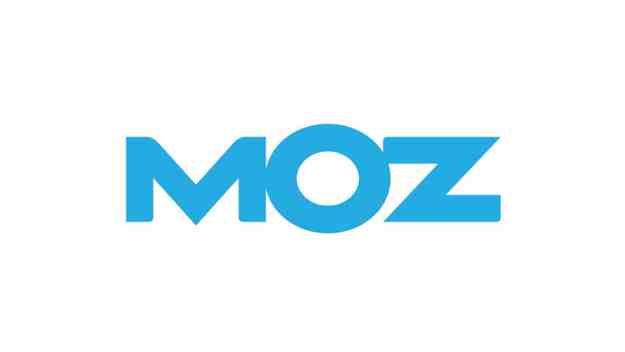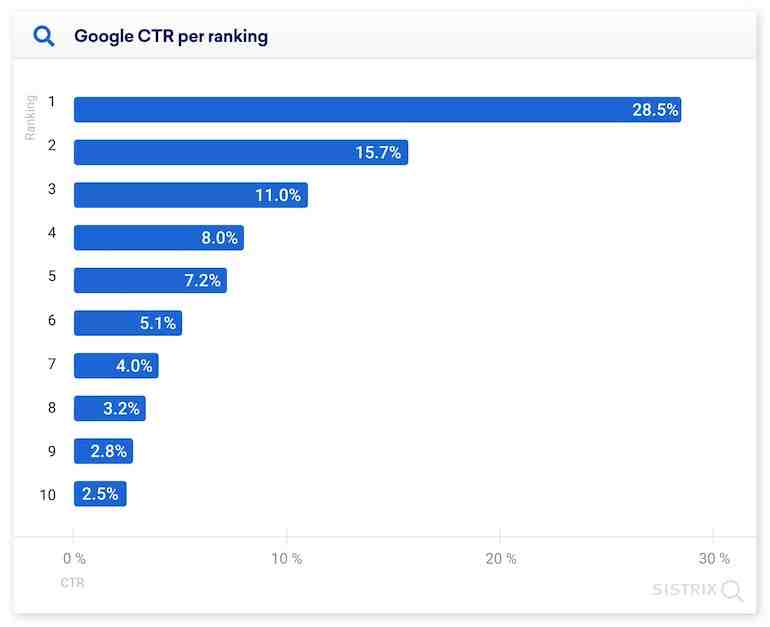Corporate SEO presents many challenges.
Larger organizations often have many people working in many offices who are not on the same page.
Even when these people have aligned their goals, past optimization can become problematic.
It’s not uncommon for legacy systems to be in place, old micro-sites consume resources, or simply don’t have the right friends in the IT department to make crucial changes needed across the business.
Different problems and challenges can – and will arise – over time.
The following are 11 of the most common SEO challenges and solutions you will encounter when working with large companies.
1. Enterprises with legacy or proprietary CMS systems in place

Challenge
Older CMS systems cause severe headaches. You will find that some departments do not have access to these systems, some will have SEO capabilities while others do not, and the learning curve for these systems is high.
Solution
Find out what the system can do and start outlining how to perform these tasks. Some things to learn that come to mind are:
If you are unable to perform these tasks, you might consider a system upgrade or perhaps even migrating to a new CMS.
Challenge
Businesses may be using the wrong tools for the job, which is often due to false promises from sales teams. However, many tools may not offer the refinement needed to work well across multiple teams.
Solution
First, you will need to analyze all the tools in use to find which ones benefit the organization and which ones are holding you back. So, sit down with vendors, discuss business options, and weed out tools that don’t offer the features businesses need for search engine optimization.
Receive the daily newsletter that marketers rely on.
3. Improper content deployment leads to lost opportunities

Challenge
Content is only useful when delivered correctly. One of the main problems with businesses is the lost opportunity to take advantage of news and trends due to bad distribution strategies.
Solution
Find ways to get everyone to align their content goals. Some things you need to do here are:
Finally, outline who has to go through the content: editors, authors, and final approvers. Once your workflows are in place, you can start delivering content faster to take advantage of timely news and trends.
Also, don’t forget that you have procedures to avoid duplicate meta titles, keyword cannibalization, and other problems.
4. Micro-sites eating up resources

Challenge
It’s not uncommon for companies to have microsites that they build over time. Unfortunately, it can be difficult to manage all of these sites.
Solution
Microsites are an excellent opportunity to gain links and provide targeted information, but they consume a lot of resources. Ideally, you will consolidate these sites into your main site and ensure that all stakeholders are part of the transition process.
5. Lack of communication and cohesion among groups

Challenge
When multiple teams and groups are involved, your job as an SEO is much more difficult. Unfortunately, it can be a challenge to find cohesion between groups.
Solution
Enterprise SEO requires that you have deep relationships with the people in the organization and that means you need to engage with managers and teams that go beyond your own. Some things you will want to do here are:
Your goal is to get everyone on the same page to make the integral changes your organization needs to achieve its SEO goals.
6. Development teams not buying into SEO strategies

Challenge
Development teams have to accept your SEO strategy, but it’s an uphill battle to make sure they do. Thankfully, a few tips can help you get IT departments to accept your strategy.
Solution
First, these departments and teams are critical to the company’s technical SEO. You will have to work alongside multiple stakeholders every day, but some of the most important will be those in the development and IT departments.
Working closely with development teams is one of the best things you can do to help a company achieve its SEO goals. Also, one thing that works exceptionally well to emphasize the importance of working together is sharing your “winnings” with the development team.
For example, share these wins with them if they helped you scale servers and make speed optimization tweaks for better results and rankings. Explain what helped you accomplish their work, and praise them at the meetings.
7. The “it works” mindset
Challenge
Sales are increasing and as the business continues to grow, management is often reluctant to change or add to the marketing budget because what is already in place “works.” This mindset is problematic when trying to get teams to participate.
Solution
If you want to get people to accept your strategy and push your strategy further, everyone has to join. You’ll need to take a one-size-fits-all approach to everyone involved here, but it should include:
Teams want to know that the work they are doing is effective and helping the company grow. People accept when they see the results, and if you can’t yet show these results, project how these changes will positively impact the business.
8. Lack of governance
Challenge
A lack of governance can quickly lead to chaos for current and future SEO teams. If the business doesn’t have governance, it’s up to you to make key changes.
Solution
Businesses need rules that help them maintain the highest level of quality and meet standards. You may have governance for multiple areas of the business, including detailed rules and procedures that must be followed by:
Governance includes policies, standards and processes that must be followed precisely. When you have the right governance in place, it ensures that everyone follows the “rules”. If future teams get involved, they can continue to follow the governance principles you have adopted.
When done right, governance will help create a consistent digital strategy, promote web accessibility, reduce errors and bugs, and help the business maintain consistency.
Challenge
Businesses expect to realize a return on their investment. And SEO is an investment that needs to be monitored to show its effectiveness. Unfortunately, many organizations lack tools to track the results of their campaigns.
Solution
Managers and owners want to see the results. If you are unable to show them the impact of your work on the business, you will soon find yourself out of a job. Use tools to monitor:
If you can prove that SEO provides value, it’s much easier for everyone in your organization to stick to your plans and strategies.
10. Lack of redirect control
Challenge
Redirects for a business can get out of hand quickly and cause more harm than good to an SEO campaign. This is a topic that I have discussed quite often in the past in my other articles on redirect errors, and it needs to be addressed early on.
Solution
Redirects need monitoring, and some things to do immediately to keep them under control are:
Finally, you’ll also want a last person to approve the redirects they can double-check to ensure they’re not causing any potential problems.
11. Overlooking technical SEO issues
Challenge
Technical SEO is a huge part of working with companies because there are so many moving parts of a large company that you will be exposed to. While the technical aspects of SEO may not be fun or exciting, they are crucial to tackle.
Solution
If technical SEO has been ignored, it’s time to put things in order and work on:
Often, the “little” problems with technical SEO get overlooked and build up over time. If you correct these problems early, it will be much easier for you to achieve your optimization goals.
The views expressed in this article are those of the guest author and not necessarily of Search Engine Land. Staff authors are listed here.
Ludwig Makhyan is a Search Engine Land contributor, dealing with organic and technical SEO. His background is in web development and digital marketing. Ludwig has over 20 years of experience in website design, coding and promotion. He is the co-founder of MAZELESS, a corporate SEO agency.
What are the pros and cons of search engines?
What are the pros and cons of private search engines?
- Pros: protect your data.
- Cons: less advanced results.
- Pros: No targeted advertising.
- Cons: Searches are not saved.
- Pros: Get unbiased search results.
- Pro: Look for a cause.
- Cons: Searches are not saved.
- Pros: Trust your search provider.
What are the advantages of a search engine? The Benefits of Using the Search Engine Search engines occupy a prominent position on the search results page, which means that it is the reliable choice. When people need the quick answer and the solution to what they are looking for, they will automatically find it using the search engine because it is fast and reliable.
What are 2 disadvantages of using search engines?
First, the search engine shows all too useless on our screen. Sometimes you can’t even find anything useful from the search results. We spend a lot of time collecting useful information from oceans of search results. Secondly, those who use search engines frequently can become lazy even stupid.
What is search engine advantage and disadvantage?
The search engine retrieves information from the web that follows “a site suitable for all” that is not adaptable to users. DISADVANTAGES â € ¢ When different users submit the same query, the same result will be returned by a typical search engine. â € ¢ It becomes difficult for the user to get the relevant content.
What is Google sea?
SEA stands for Search Engine Advertising, also known as PPC or Pay-Per-Click. It is the process of advertising directly on Google and other similar search engines. Ad results are displayed at the top and right of the organic results on the search engine results page.
What is SEO and benefits of SEO?
SEO stands for search engine optimization, which is the process of improving your site to increase organic visibility for specific search queries. The goal of SEO is to improve the quality and quantity of traffic to your website through in-place modifications.
What is SEO and its importance? SEO stands for search engine optimization, the practice of increasing the quantity and quality of traffic to your website through organic search engine results. The ultimate goal of SEO for businesses is to generate organic traffic – searchers who click on your website from a search engine results page (SERP).
What is SEO Advantage?
One of the biggest benefits of SEO is that it is an inbound marketing strategy. Unlike traditional “outbound” advertising channels, which involve connecting with consumers regardless of whether they want to hear from you or not, inbound methods are all about making it easy for your audience to find you when they want information.
What is an on page SEO and its advantage?
Benefits of On-page Search Engine Optimization (SEO) Local Results: If you’re looking for the best results, on-page SEO is the best factor. High local results are achieved by implementing SEO features such as position in the title of our landing page, Google Map, rich snippet, GEO position sitemap etc.
What is SEO and its purpose?
SEO stands for “search engine optimization”. It is the practice of increasing both the quality and quantity of website traffic, as well as exposure to your brand, through unpaid (also known as “organic”) search engine results. . Despite the acronym, SEO is as much about people as it is about the search engines themselves.
What’s the advantages and disadvantages?
As nouns, the difference between disadvantage and advantage is that the disadvantage is a weakness or an undesirable characteristic; a scam while the advantage is any condition, circumstance, opportunity or means particularly conducive to success or any desired end.
What is the example of the advantage? The definition of advantage means anything that provides a more favorable position, greater opportunity, or favorable outcome. An example of an advantage is when a football team plays a match in their home stadium. To give (someone) an advantage, to give an advantage.
What is another word for advantage and disadvantage?
| pros and cons | pros and cons |
|---|---|
| highlights and challenges | merits and demerits |
| opportunities and obstacles | advantages and disadvantages |
What is the term for advantages and disadvantages?
“Relative merits”. Pros means advantages, but the expression “relative merits” is common and suggests a weighting that would include disadvantages.
What do you mean by advantage?
1: something that benefits whoever it belongs to Speed is an advantage in sports. 2: being in a better position or condition His great height is an advantage in basketball. 3: Personal Advantage or Gain Studying is to your advantage.
What is the meaning of getting advantage?
1: make good use of (something): profit from (something) take advantage of an opportunity We took advantage of the warm weather and did some garden work. 2a: impose on (someone): ask or expect from (someone) more than is right or reasonable. After a while, I began to think he was taking advantage of me.
What does advantage and disadvantage mean?
advantages and disadvantages (= the good and bad characteristics of something) Discuss the advantages and disadvantages of working from home. the advantages outweigh the disadvantages (= there are more advantages than disadvantages) The advantages of building the new road would outweigh the disadvantages.
Is at an advantage meaning?
Definition of Advantage: Better Positioned to Succeed The union should be ahead in the negotiations.
Why is SEO so difficult?
To sum it up, SEO is difficult because search engines are constantly changing and updating. It could be anything from Google that changes how they look at a certain type of link, including a major new update to their algorithm, or even recognizing something new as a ranking factor.

